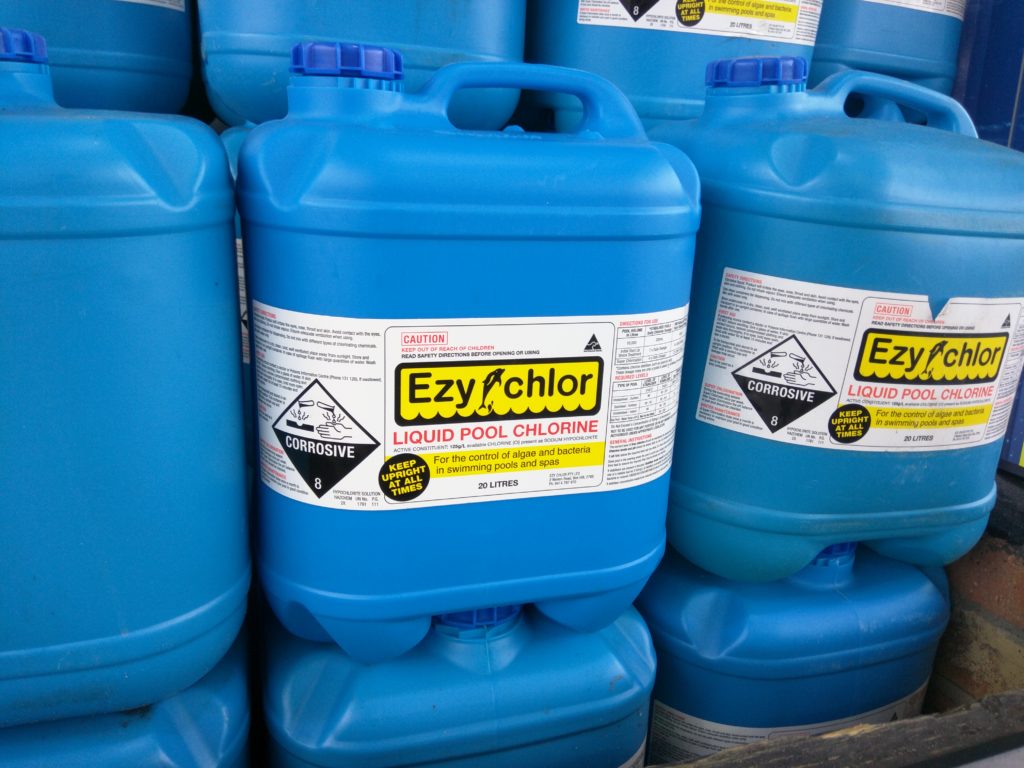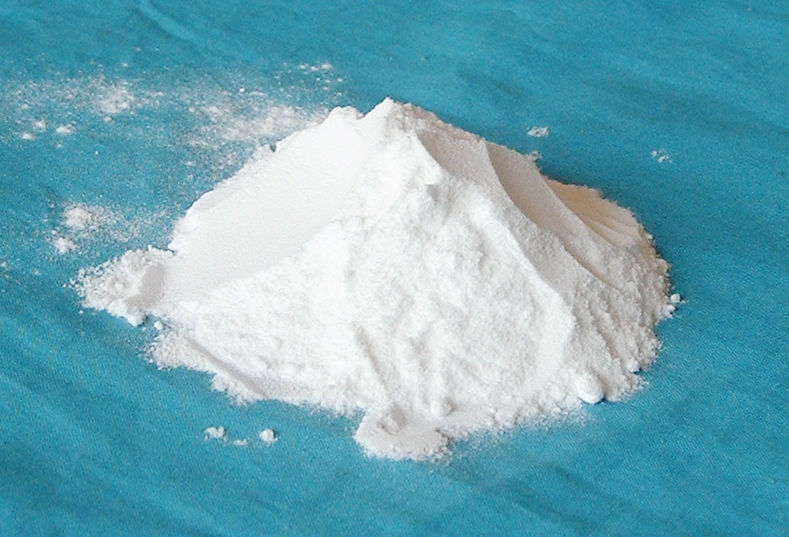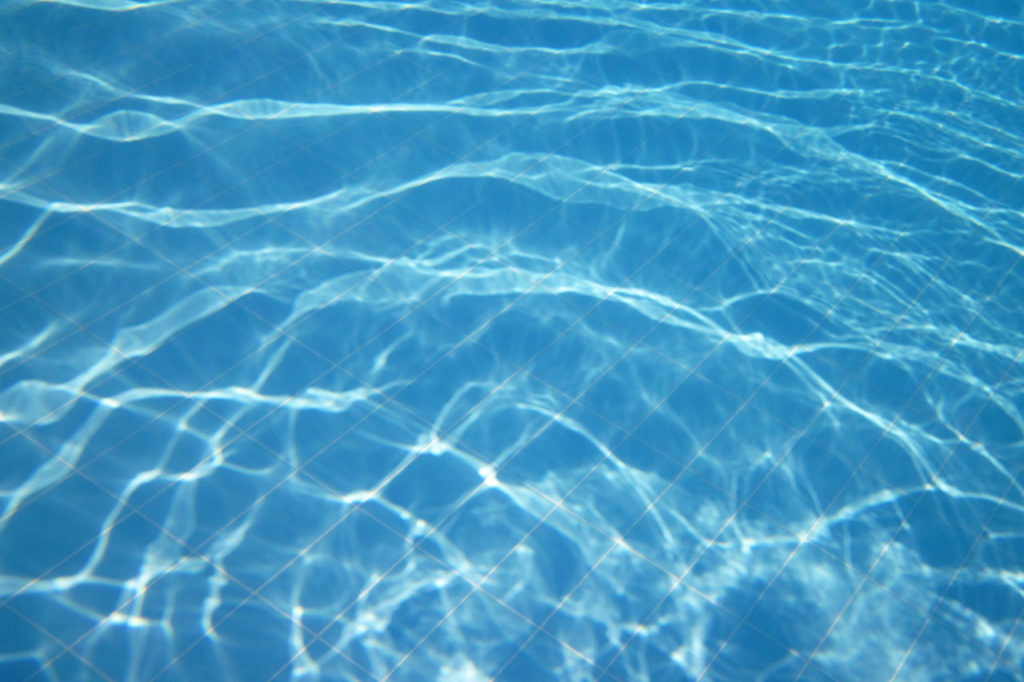Trying to decide between liquid and granular chlorine? Congrats, you’ve stumbled upon the perfect blog post
Nearly every pool owner understands the importance of keeping their water sanitized. And for many, the sanitizer of choice is chlorine. It’s effective, it’s affordable, and it gets the job done.
But chlorine comes in more than one form, and there are unique advantages and disadvantages to using each one. Liquid and granular chlorine options exist because every pool owner’s situation is different.
So in this post, we go over the difference between liquid and granular chlorine. Hopefully making it easy to choose the best one for your pool. But first, let’s do a quick refresher on how chlorine works.
The Sanitization Process Of Chlorine
Chlorine’s sanitization process begins when you add it to your pool.
It enters the water, breaking into several chemical compounds. The two most significant compounds being hypochlorous acid and hypochlorite ions. Each compound oxidizes the bacteria and contaminants in your water, just at different speeds (slow vs fast).
Chlorine then continues sanitizing your water, gradually producing chloramines. Chloramines represent used up chlorine, which we measure as Combined Chlorine. When too much combined chlorine exists, free chlorine drops. And free chlorine is the level that you measure when testing your water, hence the need to regularly add chlorine to the pool.
And that’s the cycle of chlorine.
[Curious about free and combined chlorine? Check out this post: Free Chlorine vs Combined Chlorine and Understanding Total Chlorine]
Liquid and Granular Chlorine: A Comparison
Liquid Chlorine



For pool owners in need of quick results, liquid chlorine is the ultimate solution. It’s fast acting, and you can pour it directly into the water — no need to dilute or wait. And with a pH of 13, it’s one of the strongest forms of chlorine.
Liquid chlorine is typically the choice of commercial and large public pool facilities. And of all the forms, it’s usually the cheapest price wise.
But, liquid chlorine also includes cyanuric acid, as most chlorine options do. CYA helps stabilize chlorine, but when too much of it is present in your water, undesirable side effects come into play. The two most significant being a decrease in the chlorine’s effectiveness as well as cloudy water. This happens when excess cyanuric acid binds to chlorine, weighing it down and preventing its ability to sanitize.
Therefore, when using liquid chlorine, it’s important to keep an eye on your CYA levels.
Granular Chlorine
This is the “powder” form of chlorine that pool owners are most familiar with. Its disinfecting speed varies, but it’s easy to use and effective. And with a pH of 7, there’s far less CYA to worry about.
The main difference between liquid and granular chlorine is that certain types of granular chlorine sometimes requires dilution (typically in a 5-gallon bucket) before entering your pool.
Yes, you read that right, “certain types of granular chlorine”. There are three types to be exact: di-chlor, lithium, hypochlorite, and calcium hypochlorite.



Different Types of Granular Chlorine
Di-Chlor
With a pH of 7, di-chlor granular chlorine has the lowest pH of all the forms. In result, this also means that it has much lower levels of CYA present.
It’s highly soluble, stabilized, and offers an alternative to pool shock with an average of 62% chlorine per pound.
However, all of this convenience comes at a cost. Of all the chlorine options, di-chlor is the most expensive. But if you stick to a good pool care schedule, you won’t have to worry about using it up too fast. So considering your budget and pool maintenance habits, di-chlor may be a good option for you.
Lithium Hypochlorite
Lithium hypochlorite chlorine is fast acting and has a pH of 11. But it also contains the most CYA of all the granular chlorine options.
The downside: only 35% chlorine per pound, meaning you’ll need more of it to sanitize your water
On the plus, lithium hypochlorite dissolves the fastest next to liquid chlorine, making it great for emergency situations. Plus, with a low chlorine content, it’s safe to sprinkle into your water and helps prevent damage to your system from excessive levels.
Calcium Hypochlorite
If you ever used granular chlorine but weren’t sure what type it was, it was probably calcium hypochlorite. And that’s because it’s one of the most popular options due to its affordability and effectiveness.
In fact, it’s pH 12 and 65% chlorine effective. But, it also comes with a little risk.
Why?
Because calcium hypochlorite is unstabilized, so there isn’t any CYA present at all. This is because calcium hypochlorite is regularly used as a pool shock. And since pool shocks are designed to solely raise your chlorine levels, without stabilization, it’s easy to make your chlorine levels too high. So when using calcium hypochlorite, remember to keep an eye on your CYA levels and use accordingly.
[Want to learn more about the relationship between CYA and chlorine. This post explains it all and more: Understanding Pool Chemistry]



Deciding between liquid and granular chlorine
Regardless of what you choose, both liquid and granular chlorine do an excellent job of keeping your water clean and sanitized. But when making your decision, consider your budget, pool use and maintenance habits, and pool size. For those who use their pools sparingly, tablets or liquid chlorine are usually a good choice. But for more active pool owners, granular chlorine can be the superior economical choice in the long run. It all depends on how you use your pool.
With that said, our Pool Owner Guide is the best resource for getting to know your pool.
Thinking of buying a new heater? Read this guide on How To Choose The Best Pool Heater first


